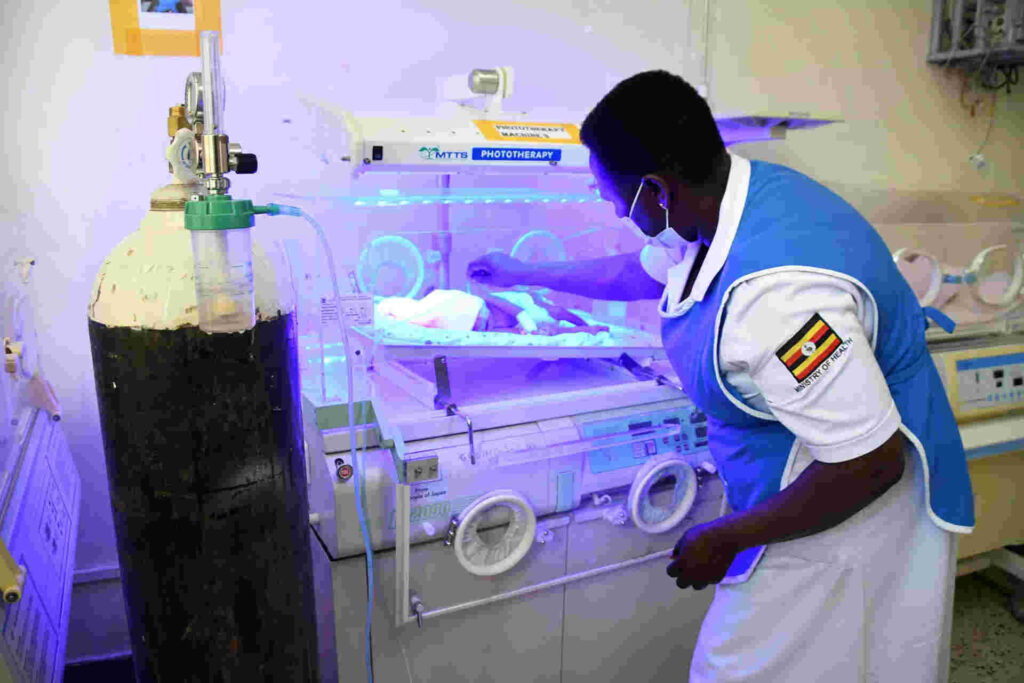By Julius Mugaga Tukacungurwa/Umoja Standard.
Kampala, Uganda: Uganda, like many countries in sub-Saharan Africa, faces significant challenges in providing adequate healthcare services, especially for its most vulnerable population—newborns. Neonatal mortality remains unacceptably high due to various factors, including limited access to quality neonatal intensive care. This then calls for establishment and improvement of neonatal intensive care units (NICUs) in Uganda to address this critical issue. Neonatal mortality is a pressing public health concern in Uganda, with approximately 27 out of 1,000 newborns dying within the first 28 days of life. The majority of these deaths are preventable with timely and appropriate medical interventions. However, the existing healthcare infrastructure, particularly in rural areas, lack the necessary resources and expertise to provide adequate neonatal care. NICUs, equipped with specialized medical equipment and staffed with trained professionals, play a crucial role in reducing neonatal mortality rates.
Neonatal mortality is a pressing public health concern in Uganda, with approximately 27 out of 1,000 newborns dying within the first 28 days of life. The majority of these deaths are preventable with timely and appropriate medical interventions. However, the existing healthcare infrastructure, particularly in rural areas, lack the necessary resources and expertise to provide adequate neonatal care. NICUs, equipped with specialized medical equipment and staffed with trained professionals, play a crucial role in reducing neonatal mortality rates.
In a bid to change this history, the government needs to establish NICUs in strategically located healthcare facilities across Uganda to ensure equitable access to neonatal intensive care as well enhancing the capacity of healthcare workers through training programs focused on neonatal care, including neonatal resuscitation, infection control, and advanced medical procedures.
The government through the ministry of health should also aim at improving the availability of essential medical equipment and supplies necessary for the effective functioning of NICUs and strengthening of referral systems to ensure timely transfer of high-risk newborns to NICUs and back to the community after stabilization.
There are other activities the government must look into to see this issue settled;
Infrastructure Development is one of those, this can be effected through identifying existing healthcare facilities with adequate infrastructure to support NICU establishment there.
Renovation and equipping selected facilities with necessary infrastructure, including designated NICU wards, electricity backup systems, and water supply.
Human Resource Development is the othe key factor. Th government through Health ministry shoul conduct specialized training programs for healthcare workers, including doctors, nurses, and midwives, on neonatal care protocols and procedures as well as establishing mentorship programs connecting experienced neonatal care providers with less experienced healthcare workers to facilitate knowledge transfer and skill development.
Procurement and Supply Chain Management is the other area of focus. There is need to procure essential medical equipment and supplies for NICUs, including incubators, ventilators, pulse oximeters, and neonatal resuscitation kits as well Implement robust supply chain management systems to ensure the timely availability and distribution of medical supplies to NICUs across the country.
Thereis need for Community Engagement and Awareness through outreach programs to raise awareness about the importance of neonatal care and the availability of NICU services as well provide education and support to families, particularly mothers, on newborn care practices and recognizing danger signs requiring immediate medical attention.
If all that is done, Monitoring and Evaluation mechanisms should come in to assess the performance and impact of NICUs on neonatal mortality rates the collect and analyze data on key indicators, including the number of admissions, outcomes, and quality of care provided in NICUs.
The establishment and improvement of NICUs in Uganda represent a critical step towards reducing neonatal mortality and improving the overall health outcomes of newborns. By focusing on infrastructure development, human resource capacity building, procurement, community engagement, and monitoring,
Essentially, collaboration between government agencies, healthcare providers, non-governmental organizations, and international partners would be a great effort to achieve these initiatives.


